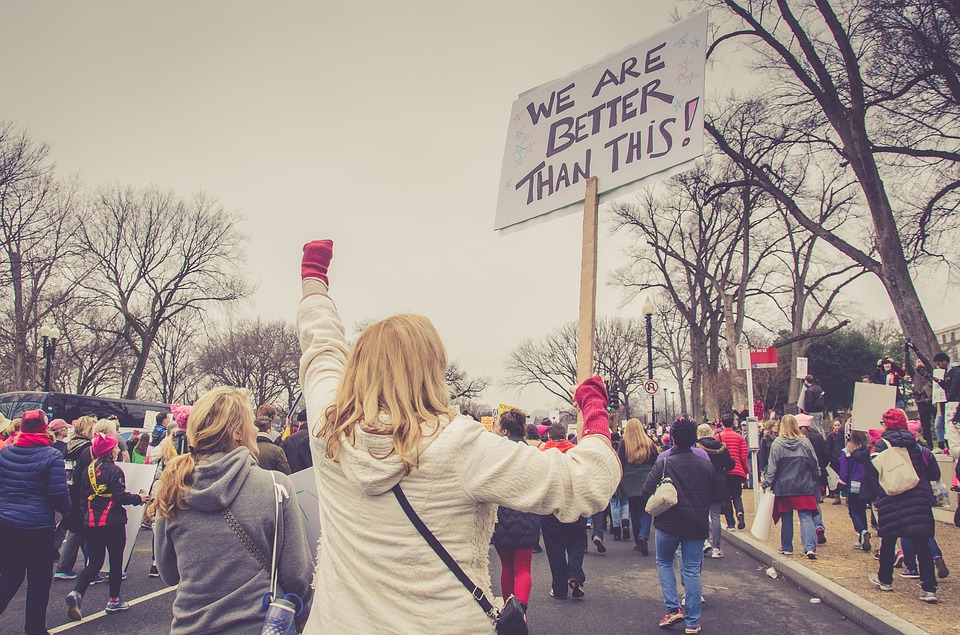I’d like to start with the caveat that I don’t know whether opinion journalism is as important as news reporting. In order to have some kind of value, I guess this kind of journalism has to be prescriptive: it has to imply a certain course of action or attitude to world events because opinions are useless on their own. Obviously, this makes me a bit of a hypocrite.
Political tensions worldwide are rising, from the most basic personal ways we interact with each other to massive institutional issues which are now gaining the attention they deserve. What is becoming clear in light of this is the opposition between the ideals of liberal democracy and the course of direct action. Namely, the question of whether politics has to be civil.
Do we have to put the values of open debate with those on the other side of the political spectrum over everything else? Do we have to be able to compromise to reach a common understanding? Democracy is based on consent and political discourse does intend to provide a fair voice to everyone. But the reality is that politics reflects society, so when a society has unfair power relations this is reflected in political discourse. Herein lies the problem of civility.
Debate and compromise require accepting the possibility that you might be wrong and that the other side’s “opinion” has as much value as your own. If this “opinion” reflects wider power relations in society then it already has an advantage over its opposition. In a political environment where we are seeing the rise of the far right, white supremacists and literal Nazis the perspective of equal value between all “opinions” isn’t just questionable, its dangerous and gambles with peoples’ lives. If someone told you that they wanted to kill you and your friend decided to debate the efficacy of doing so, you wouldn’t be thanking your friend.
If people want to protest and say that the US or UK should be a white ethnostate; that asylum seekers should be left to die to protect our borders; that trans people should be denied basic human dignity; that queer people shouldn’t have access to potentially life-saving PrEP medication, or that women shouldn’t have the right to bodily autonomy then we don’t debate these opinions. We stop them in their tracks by any means necessary. Debate requires some degree of rationality to be placed on everyone involved. There is no rationality in the perspective that one group of people doesn’t deserve the same human rights as everyone else.
The Universal Declaration of Human rights was ratified in 1948 for this very reason: to define the rights of human beings as inalienable as opposed to being up for debate. The only thing that debating with perspectives that oppose this does is divide us into the groups of those of us who have the option of debating this, and those of us whose lives are put at risk by this debate.
This is the fundamental problem with liberalism in general (which isn’t to say I’m right wing, I’m a leftist). By placing civility and debate over all else it privileges those in a position of power: it allows those in power to debate the lives of other people whilst condemning those who don’t have the option of compromising as uncivil. Ultimately there has really been no genuine rights issue in history that has been won by debate: it’s always been direct action. You can’t change the mind of someone who doesn’t respect the value of someone’s life with value debates because you don’t share the same understanding of what it means to be human.
I’m not saying that we don’t give people the option to change their perspective or that we never debate in politics. I’m just saying we don’t debate the value of other people’s lives. When someone’s course of action violates the dignity of another person’s existence we explain why this is the case and if they don’t accept this we stop them through other methods. You can stop believing that another person doesn’t deserve the same rights as you; you can’t stop being that person.
We can and should respect people’s dignity as human beings by respecting their capacity to change, but this shouldn’t come at the expense of our own values and it certainly shouldn’t come at the expense of people they’re targeting. Debate is one of the tools used by fascists in order to indoctrinate. When you allow them to debate you, you put yourself at risk as you’ve allowed the possibility you’re wrong. As a queer person, I know my life has value: I know that there is nothing wrong with me and this isn’t something I could be wrong about or that I can debate because it is simply a fact. I do know that for people who don’t live this way opening up to this possibility doesn’t impact their ability to continue living a good life. This is what scares me, and I’m sure it scares other people in many marginalised groups in society.

